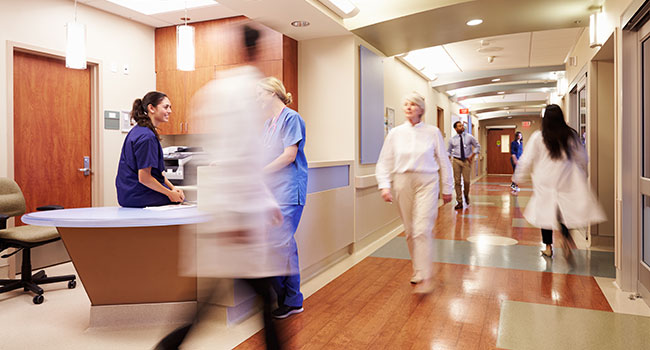
Page 2 of 1
North Carolina Hospital Revising Emergency Policies after Lockdown Confusion
Officials at Moses Cone Hospital are revising security plans after “unclear policies and protocols” led to confusion during a recent lockdown.
The hospital was put on lockdown Saturday at 7:10 p.m., and the lockdown was lifted about an hour later. According to the facility, the hospital entrances are restricted during a lockdown so no one can enter or exit except for ambulances. Activity at the hospital then continues as normal with a heightened sense of security during the lockdown.
The lockdown was the result of a threatening phone call received by an employee of the hospital’s 5th floor Select Specialty Hospital, according to an email to Cone Health employees. The threatened employee called the PBX operated and the lockdown was initiated.
"The initial overhead announcement, however, included incorrect information including the phrase 'active shooter,'" the hospital said in the email. "This message was not corrected nor were any updates made overhead until an all-clear announcement came more than an hour later."
The miscommunication caused worry and confusion for visitors and staff, according to the hospital.
"We have determined this miscommunication was not due to an individual error, but instead due to unclear policies and protocols provided to those who manage our overhead announcements," the hospital said.
As a result of this incident, Moses Cone Hospital plans to improve emergency communications to avoid problems in future emergencies. Emergency Management is revising the emergency overhead communications scripts and ensuring timely updates are added to emergency protocol.
The hospital’s review of the current lockdown policy focuses mostly on lockdowns in specific areas of the hospital campus. The Moses Cone Hospital Emergency Management and Security staffs are working on a new lockdown policy for events that affect the entire campus.
Under new procedures, a command center will be activated and messages will be sent to department directors and leadership alliance members. The hospital also plans to ensure all hospital departments have emergency radios.
Once the new protocols are implemented, the hospital plans to schedule drills to make sure those policies and processes work correctly.
"Your safety and the safety of our patients and guests is our top priority," the hospital said. "We will be working to ensure timely, accurate and continuously updated communications during emergency events that help keep patients, guests and team members informed and safe."
About the Author
Jessica Davis is the Associate Content Editor for 1105 Media.